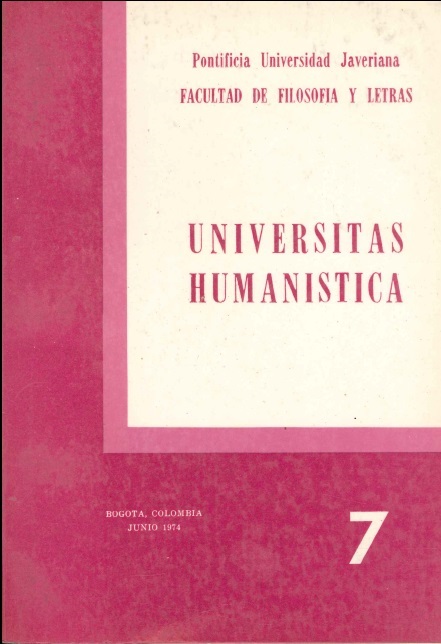Abstract
En teoría de los modelos actualmente se pretende que un modelo habrá, necesariamente, de reflejar universales lingüísticos, y que su aplicación será de índole unívoca, consistente en una serie de operaciones que relacionen hechos lingüísticos reales con el modelo. En Chomsky, dicha pretensión universalista de tipo etnocéntrico alcanza su máxima expresión.
"Si aceptamos la validez en términos generales de las conclusiones que hoy día parecen sostenibles, es razonable suponer que una gramática "generativa es un sistema construido por varios centenares' de reglas de "varios tipos diferentes, organizadas de acuerdo con determinados principios fijos de ordenación y' aplicabilidad, sistema del que forma parte determinada subestructura fija que, lo mismo que los principios generales de "organización es común a todas las lenguas".
This journal provides immediate open access to its content on the principle that making research freely available to the public, encourages greater global exchange of knowledge.
The journal Universitas Humanística is registered under a Creative Commons Attribution 4.0 International Public License. Thus, this work may be reproduced, distributed, and publicly shared in digital format, as long as the names of the authors and Pontificia Universidad Javeriana are acknowledged. Others are allowed to quote, adapt, transform, auto-archive, republish, and create based on this material, for any purpose (even commercial ones), provided the authorship is duly acknowledged, a link to the original work is provided, and it is specified if changes have been made. Pontificia Universidad Javeriana does not hold the rights of published works and the authors are solely responsible for the contents of their works; they keep the moral, intellectual, privacy, and publicity rights.
Approving the intervention of the work (review, copy-editing, translation, layout) and the following outreach, are granted through an use license and not through an assignment of rights. This means the journal and Pontificia Universidad Javeriana cannot be held responsible for any ethical malpractice by the authors. As a consequence of the protection granted by the use license, the journal is not required to publish recantations or modify information already published, unless the errata stems from the editorial management process. Publishing contents in this journal does not generate royalties for contributors.


